- Home
- Jenni James
Medley of Fairy Tales and Fables Page 17
Medley of Fairy Tales and Fables Read online
Page 17
Jane opened her eyes and saw the fairy, a miniature woman whose skin glowed like a dim star. She wore a dress made of two leaves sewn together and tied at her waist with a belt made of braided hair. Jane pulled the blanket over her head.
The fairy rattled little bells and flew around the bedroom.
Peter whispered. “Hush, Tink. Do you want to get caught in a net? Because that’s what grown-ups do to fairies, you know.”
Tink jingled again.
“Quiet now.”
Jingle.
Jane heard the little bells move to where William lay sleeping on the bottom bunk.
“Wake up, boy,” Peter said.
William did not wake up.
“Little boy!”
This time, William stirred and mumbled something. Tink’s bells rang excitedly, but her excitement was short-lived. At the other end of the trailer Jane heard Miriam’s footsteps on the kitchen floor, coming nearer. She wanted to cry out for her mother, but she was too afraid.
Tink dashed out of the window with Peter right behind her, and he slid it shut with a bang. The younger children stirred, but did not wake up. Jane was too afraid to speak, and so she pretended to sleep.
Miriam switched on the hall light and stepped softly to the window, and she stood there a long time peering out through the blinds, then she pushed down the latch. She checked the locks and latches on all the windows and doors, then she returned to the bedroom and sat in the chair.
Jane eventually drifted off to sleep. She dreamed that she and her mother sorted through boxes of memories filled with big and little moments, happy and sad moments. They paused to remember each one before laying it gently back in the box. They taped each box shut again, and placed all of the boxes back on the shelves where Jane’s memories were kept.
Early the next morning while Jane was still asleep, just moments after Miriam left for work, Emilia and William stepped out into the morning sun and ran joyously toward the river.
Jane woke up a long time after sunrise. The trailer was already hot with the mid-morning sun lying on its metal roof. Her mother went to work without waking her, and William and Emilia left the bedroom without making their beds. She listened for their voices in the living room, but heard nothing. She rolled out of bed, scrambled to get dressed and ran outside into the blinding daylight.
She hadn’t run far when she saw a commotion. A group of neighbor children gathered together in the street and they shouted, laughed and squealed happily, pointing toward the river. What Jane saw took the breath out of her and made her throat tighten.
Peter Pan hovered there above the trees and he watched, waiting. Emilia, and then William, slowly rose into view. They flapped their arms like birds and continued to rise into the sky. Tiny pinpoints of light—fairies—darted everywhere.
She ran to the end of the street and leaped into the riverbed. She saw that William had given up flapping his arms and instead held them at his side and pointed his nose in the direction he wanted to fly. “Hey ‘Milia,” he shouted, “point your nose, like this.”
Emilia was in a lazy spin that she couldn’t control. She grasped at the air as if hoping to find something she could hold onto, but she was already too high above the trees.
Jane was now under the shade and found herself surrounded by thousands of fairies dashing frantically about, ringing their bells. Each fairy had a miniature pouch slung over her shoulder from which sparks slipped and floated down like snow. The specks of light settled on Jane’s skin, then disappeared.
She felt a lightness spread over her body and she forgot every worry. She gazed at the fairies and thought there could be nothing more beautiful. The fairies, in their weaving and spinning, were the things of dreams. Their light followed just behind them like the tails of comets, and their wings fluttered so quickly that they were all but invisible. Fairies spun in circles around her, above her, and below—
Jane was floating! Her feet were off the ground and she drifted upward. She grasped at the air and kicked her legs and took hold of the first limb she caught, then lay on the branch breathing heavily, trying not to cry. Above the mess of fairies and branches and leaves she could still hear William’s gleeful chatter, but it grew fainter every moment.
Jane pulled herself along the branch toward the larger upright limb, and the bark scraped at her legs and arms, and it snagged at her t-shirt as she went. When she reached the limb she pulled herself up and sat on the branch and wiped her tears with one hand, and held tight to the tree with the other.
Her brother’s voice had nearly faded away above her, and the buzz and bells of fairies in their zigs and zags, and their circles, made her feel too afraid to move. Below, the dirty water, the sand, the grass, the littered ground, were all dark in the backdrop of the glowing fairies.
Jane pulled herself to her feet, and balanced on the branch. Sunlight shone through a clearing in the leaves just above her. She wiped her cheeks, took a quaking breath, and leaped toward it.
The sensation of flying into an endless sky sent her into a panic and she broke through the trees with a handful of leaves that she stripped from a limb as she flew past. She spun, head to toe, with a cloud of fairies and the earth and sky all rotating in and out of view.
Then a fairy embraced one of her fingers and helped to steady her. The fairy approached her face, and hovered so close to the tip of her nose that she had to cross her eyes to see it clearly. Jane recognized it as the fairy that had come into her house with Peter Pan the night before.
“Are you Tinker Bell?” Jane asked.
The fairy shook her head. And when she opened her mouth, friendly bells rang.
“Will you show me how to fly?”
The fairy nodded, and began to pantomime. Hold your arms out like this, wiggle your toes, wiggle your nose, whistle a tune…Jane wondered whether what the fairy said was a meaningless dance for the fairy’s own amusement. Later, she realized that it was. Eventually the fairy got to the business of flying, and soon, Jane was hurling unsteadily toward her sister.
Jane took Emilia’s hand and looked into her eyes. Emilia hadn’t learned how to fly yet and she had floated aimlessly upward. A few fairies mocked her, but none stopped to help. Angry tears rolled down her cheeks.
“I think I figured it out,” Jane cried. “Straighten your body, like this, and focus your eyes where you want to go.”
After some practice, the girls took aim together and burst straight into a little cloud. When they reappeared on the other side they laughed and whooped as children usually do on their first flight.
William and Peter had a good head start, and Jane thought the boys looked like little black birds in the sky. Many Tinker fairies were on their way home to Neverland, and they flowed past in a stream and gave the girls a path to follow. Although it was morning on the mainland, the sky began to darken, the sun rushed to the horizon. Soon, a few stars appeared.
The sky between the mainland and Neverland was an eternal twilight, as if the sunset had withdrawn, leaving the dark blues and lavenders behind. A last fringe of red light spread its fingers just over the horizon as if the sun had set in every direction. Only the most brilliant stars showed themselves, and the full moon was always present. In the subdued light, every color seemed more radiant.
When children enter the sky between the mainland and Neverland, they tend to forget. Their minds fly away into daydreams and fantasies, and there is little left for anything else, not even for memories. When they enter the mysterious sky, they remember no home, no Neverland, or anything else except that place. They have no other thing to do than to fly among the clouds and stars and fairies forever.
The children were forgetting.
Jane thought she had been there for weeks. No! Maybe a few hours. Had it been several days? She tried to think about her mother. Who was her mother? She had no mother.
But her mind was not all cluttered yet, and images began to form of a gentle woman, who loved her, and who kissed her on the chee
k at bed-time, and—Miriam was her mother! William was her brother. And Emilia—
“Emilia!” she cried.
Emilia had let go of Jane’s hand and she was flying closer to the clouds among a crowd of fairies. When she heard Jane’s call, she shot upward like a bullet, made a wide backward loop, dived down with her arms outstretched, and straightened out when she was at Jane’s side. Several fairies darted out of the way and they complained about it with their little jingling voices. “How long do you think we’ve been flying?” Jane asked.
“Don’t be dumb. We’ve always been flying.”
“But really. How long ago did we leave?”
Emilia was confused by the question.
“I’m forgetting mom,” Jane said. “She’s disappearing.”
“Who is mom?”
Jane didn’t really know who her mother was. She had already forgotten again. “I don’t know,” she said, “but she’s back down there somewhere.”
There was no land—only the sky above, a few stars, the moon, the clouds, and a dark, vast sea far below.
Suddenly, a man exploded through a swarm of fairies, and the little creatures scattered in every direction. He slowed to a stop and glared into Jane’s eyes. He was a frightening figure with a head and face full of black hair and a monocle on one eye that made the eye seem too big for his head. His other eye was closed.
“Where is Peter Pan?” the man cried.
Jane glanced in the boys’ direction and knew that she had just made a terrible mistake, because the man followed her glance and discovered them in the distance. When he turned back to Jane, she saw something behind the frightening beard and hair. It was the face of every child who never had a mother.
“Get thee home,” the man said. “Only misery awaiteth thee in Neverland.” The great eye behind the monocle watered. “Find thy mother, and remember her name, and her smile, and the way that she holdeth thee close, and the name by which she calleth thee.” He lingered until a teardrop made a wet trail down his cheek and into his beard.
Jane placed a hand on his shoulder and she felt him shudder—
He turned away from the girls, and wiped his cheek. With an angry shriek he burst out toward Peter Pan.
Emilia had become distracted watching fairies begin to swarm together, and she had flown a short distance away and was commenting on their pretty outfits of leaves and flowers.
Jane took her by the arm. “We’ve got to get William.”
“Who’s William?”
“He’s our brother? Don’t you remember William?”
Emilia shook her head for a moment, but then gazed into Jane’s eyes and smiled. “I...I think so...Yes, I do!”
Chapter 6
P eter was in the habit of diving down to the sea or into a cloud after some flying beast. Each time, he returned with a trinket, or a fish, or some strange souvenir which he examined with curiosity before tossing it back into the sky. He chased great never-eagles, to steal food out of their beaks, then he reclined in flight and ate what he stole, which was always some unlikely food, like a dish of vanilla custard.
With each of Peter’s short adventures he completely forgot about William, and when William became afraid and cried out, Peter returned and pointed him toward the third star to the right.
For Peter, nothing was more important than having fun, and nothing was more fun than filling his day with mischief and make-believe. He rapped William’s knuckles with the side of his sword when he failed to play make-believe convincingly.
“How’s the water?” Peter asked.
William didn’t have any water. “What water?”
“The water of the hot springs in Neverland, where the Mermaids scrub their pots.”
“Oh, the water is perfect.”
“So, it is,” Peter cried. “Just perfect!”
Not everything was make believe. A moment after asking William about the hot springs, Peter said, “Watch! I’ll scare the dragon from that cloud.”
William thought of a make-believe dragon as soon as Peter had disappeared behind the cloud. “Pretty dragon! Purple, and green and orange and—”
A wingless serpent, feathered in purple, green and orange, broke from the cloud. The terrified monster screeched past William, and the tailwind sent him spinning through the air until Peter caught him.
“Did you see it?”
William, with wide, frightened eyes, nodded.
That is how the journey went for William—events of confusing make-believe and frightening reality—until the fairies began to swarm around Peter. They came from everywhere and covered his body, and their bells rang loudly through the whole sky.
Tink rang in Peter’s ear. “The pirate is coming!”
Peter drew his sword and spun left just in time to dodge the blade of Captain Scoots. A dozen fairies were cut down by the pirate’s sword, their lights extinguished, and they fell to the sea below. Peter commanded the rest of them to leave, but instead they buzzed around like angry wasps protecting their nest.
“Heigh, ho, old boy!” Peter taunted.
Scoots had come to a stop a hundred feet away, and turned to face Peter. His monocled eye was shut and he held his sword to the ready.
“Is that your best form?” Peter taunted. He turned away from Scoots and bent over to look at him upside down between his knees. “Ah! A much better view.”
Scoots charged, and Peter stayed put until he was nearly upon him. When it was almost too late, Peter jerked upright to face the pirate.
Their swords clashed again and again. The man and the little boy maneuvered for advantage in the sky, sometimes fighting face to face, sometimes attacking from below or from above.
Peter had a peculiar manner of sword fighting. He played the defense until he became bored with it, then he took the offense until he was bored. When the whole fight bored him he simply flew in circles around his opponent to make him cry out in anger, which delighted Peter. He fought with glee, as when a child plays swords with a stick.
Scoots attempted to predict Peter’s next move, but often ended up spinning in circles. He called on his fairy to poke Peter in the eye, or distract him with a pinch, but when the fairy came near she was chased away by a hundred angry Tinkers. The Tinkers prodded at Scoots and he swatted at them with his sword. Many were sent to the waves below.
When Jane and Emilia arrived on the scene Peter had just disappeared into a cloud.
“Reveal thyself, and be a man!” Scoots cried, and he gazed into the mist.
Meanwhile, Peter exited the cloud from another side and floated beside William, grinning mischievously and bragging. “See how the stupid pirate falls for every trick? He’s much too fun to play with. I suppose that is why I don’t kill him. I could take off a hand or a leg, but what fun would he be dead or maimed?”
Jane held tight to Emilia with one hand, and took William with the other.
“Hello!” William said.
Jane squeezed his hand. “It’s time to go home.”
“Home?”
Peter hissed at the children, but he didn’t have time to fight with them. He turned just in time to clash swords with the charging pirate.
Jane tried to remember home, but the word seemed hollow. She couldn’t picture what home was, or whether the word meant anything at all. She looked into the boy’s eyes and saw a stranger. The boy still waited for her to say something.
“Jane.” The girl beside Jane tugged at her hand. “I want to go home. Let’s go home now.”
Jane saw something in the girl’s eyes that was familiar and pretty and gentle.
“Mom will be worried about us,” the girl said.
“Mom!” Jane’s memory came powerfully, like lightning. “William, you call her mama. Do you remember?”
“I...”
“She’s the pretty lady who reads to us at night. Sometimes she sings to you, to help you fall asleep.”
William remembered, and his lips trembled. He began to quietly cry.
“Mama?” William whispered. A tear rolled down his cheek and fell down into the sky.
The children turned toward home.
The dark ocean below sometimes raised waves like mountains. Other times it was tossed violently by wind and was covered with white caps that seemed to glow in the half-light. Often the water was calm and reflected the stars and the clouds.
The children saw the colorful dragon glide along peacefully in the wind. They chased a few never-eagles and stole custards and pastries from their beaks. They passed numerous fairies still on their way home to Neverland. They talked about Miriam, and wept together when they thought she might be missing them. It may have been days or weeks since she last saw them.
When Scoots saw that Peter had begun to fight him with one eye shut, mocking his monocle, he did not accept the mockery happily. He was the Captain of the Jolly Roger! He had wrestled the ship away from Captain Burninghat, who had pirated it away from Peter Pan!
The boy continued to fight as if he were playing with a friend, which angered Scoots even more. He couldn’t match Peter’s skill in flight. He was always up when Peter was down, left when Peter was right, spinning when Peter was still. He could not win, and he knew it.
With an angry cry, Scoots hurled his sword at the boy, and it might have struck him except that he had both eyes open when he took aim. The sword missed its mark and whistled past Peter’s right side and spun, blade to hilt, down, down, to the churning sea.
With a bow, and a magnanimous phrase or two, Peter congratulated Scoots on the enjoyable fight.
Peter was a stupid boy! A ridiculous boy! The destroyer of lives! If he wanted fun, Scoots would offer fun. “Let us finish our fun with a race!”
Peter eyed the pirate for a moment. “Brilliant idea, old man!” He sheathed his sword. “Where do we begin? And where do we finish?”

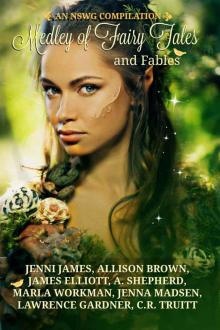 Medley of Fairy Tales and Fables
Medley of Fairy Tales and Fables Lord Atten Meets His Match (Regency Romance Book 3)
Lord Atten Meets His Match (Regency Romance Book 3) Cinderella's Phantom Prince ; Beauty's Mirror
Cinderella's Phantom Prince ; Beauty's Mirror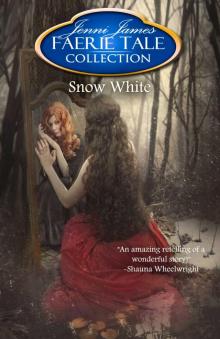 Snow White
Snow White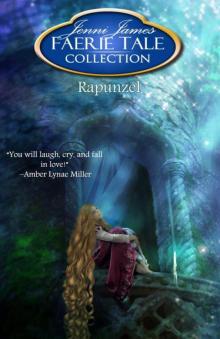 Rapunzel (Faerie Tale Collection)
Rapunzel (Faerie Tale Collection)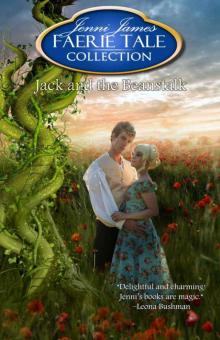 Jack and the Beanstalk (Faerie Tale Collection)
Jack and the Beanstalk (Faerie Tale Collection) Lord Atten Meets His Match
Lord Atten Meets His Match Persuaded (Jane Austen Diaries)
Persuaded (Jane Austen Diaries) PrideandPopularity20July11
PrideandPopularity20July11 Lord Romney's Exquisite Widow
Lord Romney's Exquisite Widow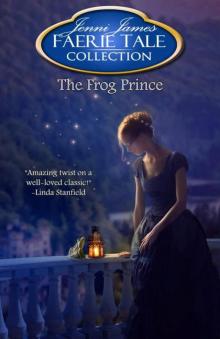 The Frog Prince
The Frog Prince The Little Mermaid (Faerie Tale Collection)
The Little Mermaid (Faerie Tale Collection)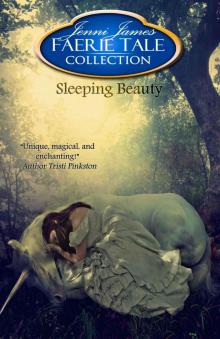 Sleeping Beauty (Faerie Tale Collection)
Sleeping Beauty (Faerie Tale Collection) Jane and Bingley (Countdown to Christmas Book 8)
Jane and Bingley (Countdown to Christmas Book 8) Northanger Alibi
Northanger Alibi My Pride, His Prejudice (Austen in Love Book 1)
My Pride, His Prejudice (Austen in Love Book 1)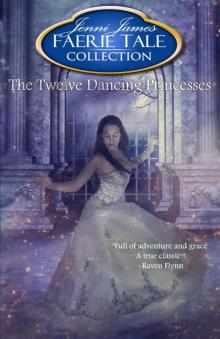 The Twelve Dancing Princesses (Faerie Tale Collection)
The Twelve Dancing Princesses (Faerie Tale Collection) The Bluestocking and the Dastardly, Intolerable Scoundrel
The Bluestocking and the Dastardly, Intolerable Scoundrel Pride and Popularity jad-1
Pride and Popularity jad-1 Sensible and Sensational (The Jane Austen Diaries Book 6)
Sensible and Sensational (The Jane Austen Diaries Book 6)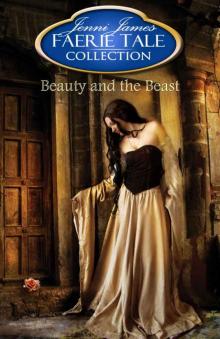 Beauty and the Beast (Faerie Tale Collection)
Beauty and the Beast (Faerie Tale Collection)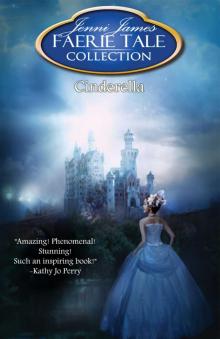 Cinderella (Faerie Tale Collection)
Cinderella (Faerie Tale Collection)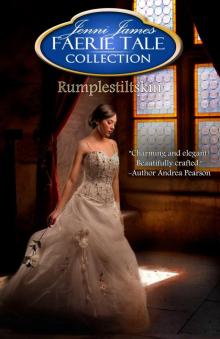 Rumplestiltskin
Rumplestiltskin Not Cinderella's Type
Not Cinderella's Type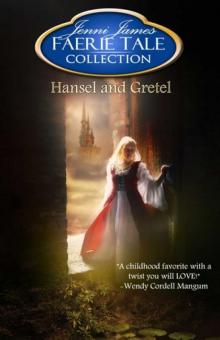 Hansel and Gretel
Hansel and Gretel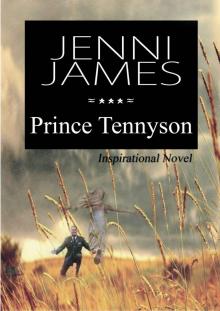 Prince Tennyson
Prince Tennyson NorthangerAlibiInterior
NorthangerAlibiInterior